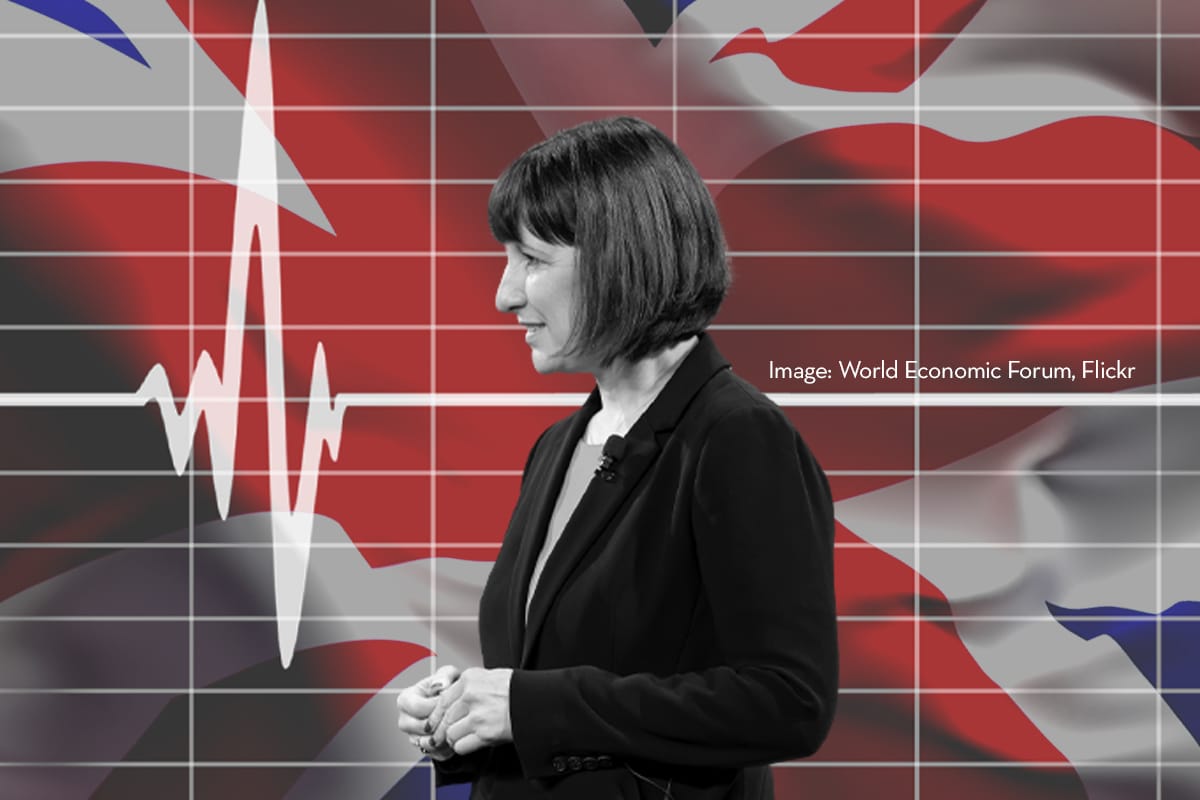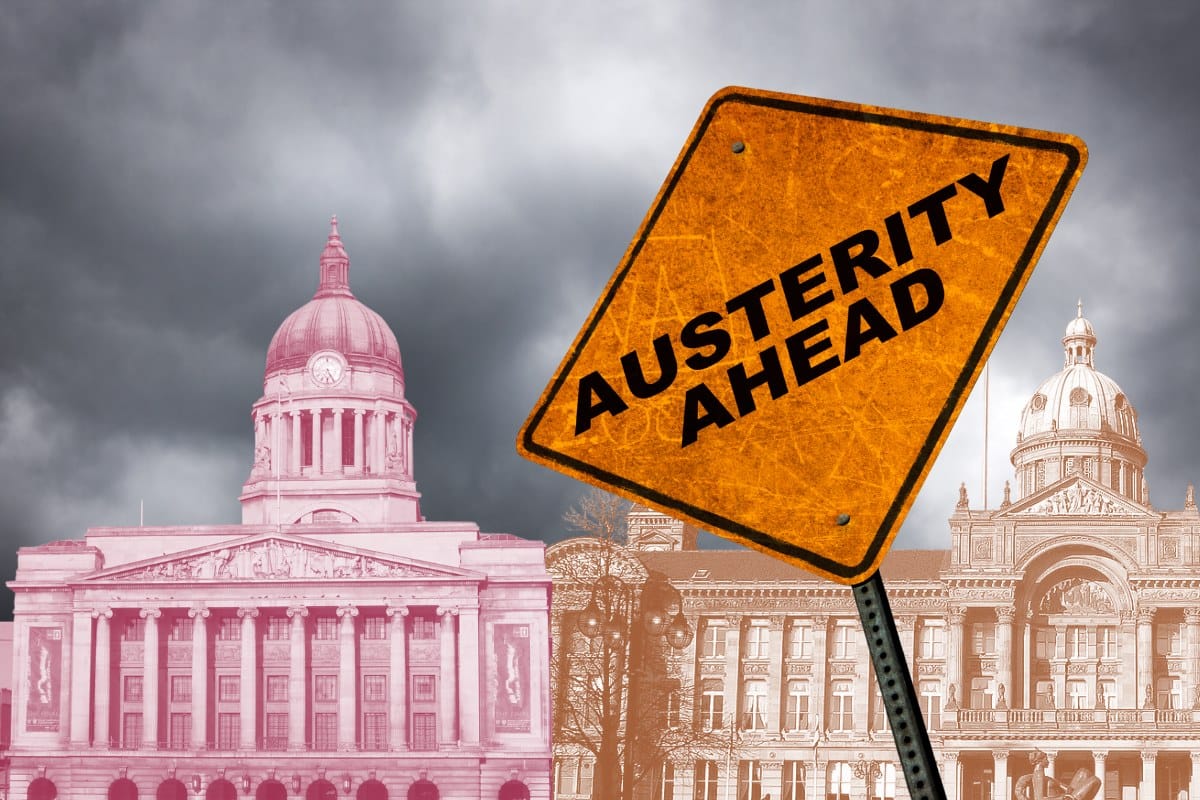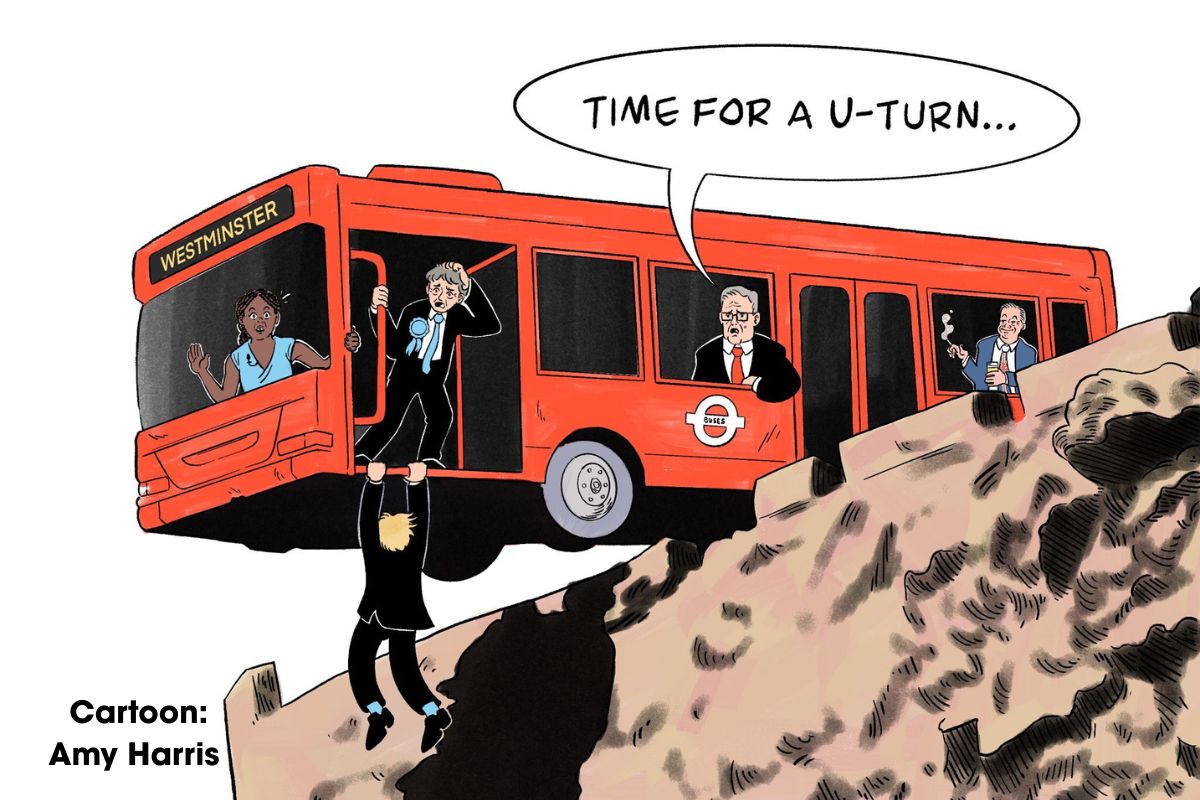The start of next month will mark a year in power for Starmer’s Labour. But with pressure bearing down on the Prime Minister and his government on all sides, any anniversary commemorations are more likely to be accompanied by real pain than champagne.
The backdrop to Starmer’s tenure has been the ceaseless turbulence of imperialist tensions, trade wars, market jitters, and political turmoil.
Bourgeois commentators blame Donald Trump for all this chaos. At root, however, this reflects the crisis of the capitalist system.
The liberal postwar international order is breaking down. Free trade is giving way to protectionism. And geopolitical conflicts and clashes are replacing the old ‘rules-based’ diplomatic arrangements.
Squeezed on all sides
British capitalism and its representatives find themselves in a particularly vulnerable position: squeezed economically between the major powers of America, China, and Europe.

Exacerbating these stresses is the long-term decline of British capitalism. UK industry lags far behind its competitors. Productive investment has given way to an orgy of speculation in the City of London.
Keir Starmer and his Chancellor, Rachel Reeves, talk about ‘growth’. Yet the UK economy is barely avoiding recession. Meanwhile, inflation is proving to be stubborn.
At the same time, a mountain of debts – with an annual interest bill of over £100 billion – is biting into the government’s budget, with Britain’s creditors insisting that they be prioritised ahead of workers and the vulnerable.
And the jingoistic ruling class is demanding rearmament and militarism, calling to put warfare before welfare; for a war on the poor, in the interests of western imperialism and the British establishment.
These are the objective pressures weighing down on Starmer’s government – all symptoms of the madness of capitalism.
Panic in the Labour Party
The Labour leaders, in turn, are determined to place these burdens on the backs of the working class, through endless attacks on jobs, conditions, and services.
This is fomenting an explosive anger across society, which is increasingly bursting to the surface – on the streets and at the ballot box.
This is the underlying cause for the rise of Reform UK.
Nigel Farage is a charlatan, cut from the same cloth as the other liars in Westminster. Nevertheless, he is an astute demagogue, who can tap into feelings of discontent amongst ordinary voters.
The Labour and Tory leaders are busy trying to outflank Reform on the right regarding migration. Farage, meanwhile, is increasingly occupying the space on the left of British politics: supporting the nationalisation of steel and water; opposing austerity measures like cuts to pensioners’ winter fuel allowance; and courting the votes of trade unionists.
Reform’s success in the local elections set off alarm bells in Westminster. And opinion polls since have only heightened the panic in both Conservative and Labour HQs.
With Reform breathing down their necks, Labour MPs are becoming restless. This is leading to open discord within the party, including splits over the cuts.
A ‘leaked memo’ by deputy leader Angela Rayner suggests taxing the banks instead of slashing welfare. And in advance of the Treasury’s spending review, Labour ministers are scrambling to secure crumbs for their austerity-stricken departments.
Starmer’s schizophrenia
The result has been increasingly schizophrenic messaging from Downing Street.

On the one hand, ‘Sir’ Starmer has dismissed Farage’s promises as “fantasy economics”; invoking the spectre of Liz Truss to assert the need for “stable finances”.
Similarly, the Prime Minister has declared that the country cannot “tax its way to growth”. And he has assured the imperialists that ‘defence’ spending will increase, to “make Britain a battle-ready, armour-clad nation”.
The Chancellor, meanwhile, is sticking to her ‘fiscal rules’, refusing to countenance further government borrowing at a time of already-massive debts and repayment costs.
In other words, investors must not be ruffled. Further austerity, not spending on welfare and healthcare, is the only dish on the menu.
On the other hand, feeling the heat of enraged working-class voters, Starmer has offered various placebos regarding the worst of the cuts.
Workers must not be fooled by talk about ‘U-turns’. This is just window dressing, designed to mollify MPs and distract from the government’s austerity agenda.
Diktats of capital
When it comes to their economic arguments, Starmer and Farage are both right.
The Labour leader is correct in saying that the government must balance its books, lest it incur the wrath of ‘bond vigilantes’.
Despite the assertions of the People’s Assembly, organisers of the 7 June national demo, austerity is not a “political and ideological choice”. Within the confines of capitalism, whoever resides in Number 10 will be forced to follow the diktats of the market.
Attempts to ‘tax the rich’, meanwhile, will only lead to a flight of capital – as can already be seen from the exodus of billionaires due to Labour’s mild suggestions of additional taxes on employers.
At the same time, Nigel Farage is correct in accusing his Labour counterpart of being in the pocket of big business.
Workers and youth must have no trust in Starmer’s government: a handmaiden for the capitalists and imperialists.
Revolution against the billionaires!
As communists, we too want to see ‘welfare not warfare’.
Unlike the reformists, however, we explain that austerity and war are the product of capitalism – not of ethical errors by wayward politicians.

Instead of appealing to establishment politicians, we must organise to overthrow these scoundrels – and the decrepit capitalist system that engenders crisis, cuts, and conflict.
Demands to ‘tax the rich’ do not go nearly far enough. You cannot cure cancer with an aspirin. A bit of tax-and-spend cannot avert capitalism’s looming catastrophe.
Our clarion call must be: No to austerity! No to capitalism! Revolution against the billionaires!
Seize the wealth of the mega-rich! Nationalise the big banks and major monopolies! Plan the economy on a socialist basis – for need, not profit – under democratic workers’ control!
This is the revolutionary perspective and programme that comrades of the Revolutionary Communist Party are fighting for. If you agree, then it’s time to get organised and join the communists.






